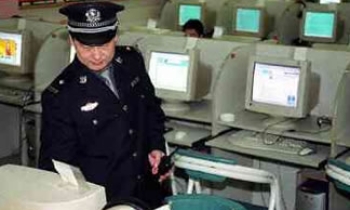NEW YORK: A.M. Rosenthal, a Pulitzer Prize-winning foreign correspondent who became the executive editor of The New York Times and led the paper's global news operations through 17 years of record growth, modernization and major journalistic change, died Wednesday in Manhattan. He was 84.
His death, at Mount Sinai Medical Center, came after he had suffered a stroke two weeks ago, his son Andrew said. Rosenthal lived in Manhattan.
From ink-stained days as a campus correspondent at City College through exotic years as a reporter in the capitals and byways of Europe, Asia and Africa, Rosenthal climbed on rungs of talent, drive and ambition to the highest echelons of The Times and American journalism.
Brilliant, passionate, abrasive, a man of dark moods and mercurial temperament, he could coolly evaluate world developments one minute and humble a subordinate for an error in the next. He spent almost all of his 60-year career with The Times - he often called it his life - but it was a career in three parts: reporter, editor and columnist.
As a reporter and correspondent for 19 years, he covered New York City, the United Nations, India, Poland, Japan and other regions of the world, winning acclaim for his prolific, stylish writing and a Pulitzer Prize. The Pulitzer was for international reporting in 1960, for what the Communist regime in Poland, which had expelled him the previous year, called probing too deeply.
Then, returning to New York in 1963, he became an editor. Over the next 23 years, he served successively as metropolitan editor, assistant managing editor, managing editor and executive editor, enlarging his realms of authority by driving his staffs relentlessly, pursuing the news aggressively and outmaneuvering rivals for the executive suite.
At the helm of a staff of highly regarded editors and writers that included many young stars he had recruited, Rosenthal directed coverage of the major news stories of the era - the war in Vietnam, the Pentagon Papers, the Watergate scandal and successive crises in the Middle East.
Publication of the Pentagon Papers in 1971 was a historic achievement for The Times. The papers, a 7,000-page secret government history of the Vietnam War, showed that every administration since World War II had enlarged America's involvement while hiding the true dimensions of the conflict.
The Nixon administration tried to suppress publication, and the case led to a landmark Supreme Court decision upholding the primacy of the press over government attempts to impose "prior restraint" on what may be printed. Major roles were played by Times staff members, among them Neil Sheehan, the correspondent who had uncovered the papers. But it was Rosenthal as editor, arguing strenuously for publication, and Arthur Ochs Sulzberger, the publisher, who made the crucial decisions.
Despite the crisis atmosphere, there were some light moments. In an oft-told tale, Sulzberger recalled that when he told Rosenthal he wanted to read the Pentagon documents before deciding whether to publish them, Rosenthal, with barely concealed glee, wheeled a grocery cart containing the papers into the publisher's office.
After 17 years as a principal architect of the modern New York Times, Rosenthal stepped down as the top editor in 1986 as he neared his job's mandatory retirement age of 65. Sulzberger said at the time that Rosenthal's "record of performance as executive editor of The Times will last as a monument to one of the titans of American journalism."
He then began the last phase of his Times career, nearly 13 years as the author of a twice-weekly column, "On My Mind," for the Op-Ed page. His first column, on Jan. 6, 1987, and his last, on Nov. 5, 1999, carried the same headline, which he wrote: "Please Read This Column."
As managing editor from 1969 to 1977 and as executive editor until 1986, Rosenthal guided The Times through a remarkable transformation that brightened its sober pages, expanded news coverage, introduced new production technology, launched a national edition, won new advertisers and tens of thousands of new readers, and raised the paper's sagging fortunes to unparalleled profitability.
By the end of the 1960s, The Times, despite a distinguished journalistic history, had a clouded future. Its reporting and writing were widely regarded as thorough but ponderous. Revenues were declining, profits were marginal, circulation was stagnant, and some studies said The Times might be doomed in the age of television to join a dozen New York newspapers in the elephant graveyard.
Rosenthal enlarged the foreign and national news staffs and the Washington bureau, and pressed local reporting out into the suburbs of New York. Winning Pulitzer Prizes, sometimes two or three at a time, became annual events for the staff under Rosenthal's stewardship; The Times and its staff members won 24 Pulitzers during his years as editor.
Wielding enormous power to hire, reward and transfer subordinates, he personally approved all news staff promotions, raises and major assignments, shaping the pyramid of personnel under him and approving all major appointments to local news beats and to national and foreign bureaus. In the process, he made and broke the careers and dreams of scores of reporters and editors. Among those whose careers flourished under Rosenthal were two future executive editors of The Times, Joseph Lelyveld and Bill Keller, who now holds the title, and Anna Quindlen, the author and former Times columnist.
Friends said that Rosenthal had often wondered aloud at the enmity he aroused and that he sometimes expressed hope that his detractors would someday see his objectives and the best interests of The Times as synonymous.
At a White House ceremony on July 9, 2002, President George W. Bush awarded the Presidential Medal of Freedom, the country's highest civilian award, to Rosenthal and 11 others, including Nelson Mandela, Nancy Reagan, baseball's Hank Aaron, the tenor Placido Domingo and Katharine Graham, the late chairwoman of The Washington Post.
Rosenthal's son Andrew went on to become the deputy editorial page editor of The Times.









